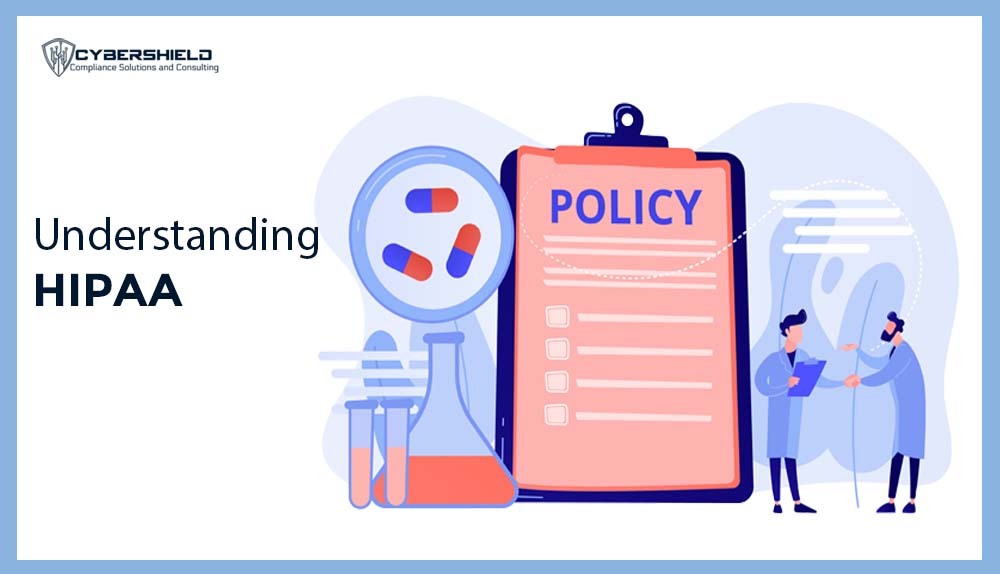PCI DSS vs HIPAA: What’s the Difference and Why It Matters to Your Business
When it comes to protecting sensitive data, two of the most critical compliance frameworks are PCI DSS (Payment Card Industry Data Security Standard) and HIPAA (Health Insurance Portability and Accountability Act).
Businesses often ask: What is the difference between PCI DSS and HIPAA, and why does it matter to my organization?
Both frameworks serve the same ultimate goal: securing confidential data and reducing the risk of data breaches. However, they apply to different industries, regulate different types of data, and require unique compliance measures. Understanding where PCI DSS and HIPAA compliance diverge and where they overlap is crucial for building a robust cybersecurity strategy, mitigating liability, and building trust with customers and partners.
Understanding PCI DSS
The Payment Card Industry Data Security Standard (PCI DSS) is one of the most widely recognized and enforced frameworks in the world of cybersecurity. It was developed in 2004 by the major credit card brands, Visa, MasterCard, American Express, Discover, and JCB, to create a unified standard for protecting cardholder information and reducing the risk of fraud.
Any business that accepts, processes, stores, or transmits payment card data, whether it’s a small e-commerce shop or a multinational enterprise, falls under the scope of PCI DSS.
Unlike optional best practices, PCI DSS is a mandatory requirement for organizations that handle card transactions.
Objectives of PCI DSS
At its core, PCI DSS compliance requirements aim to:
- Safeguard cardholder data against unauthorized use, theft, or breaches.
- Reduce financial fraud by ensuring payment systems are secure.
- Establish trust between merchants, service providers, and customers.
- Create consistency in how businesses protect sensitive data across industries and geographies.
Levels of PCI DSS Compliance
The standard is tiered to account for the size of a business and the number of transactions processed annually:
- Level 1: Over 6 million transactions annually. Requires annual on-site assessment by a Qualified Security Assessor (QSA).
- Level 2: 1- 6 million transactions. Requires annual self-assessment and quarterly scans.
- Level 3: 20,000 to 1 million transactions. Requires annual self-assessment and quarterly scans.
- Level 4: Fewer than 20,000 e-commerce transactions or up to 1 million transactions through other channels. Requires self-assessment and quarterly scans.
Consequences of Non-Compliance
Failing to meet PCI DSS compliance requirements exposes a business to far more than regulatory slap-on-the-wrist fines. The impact often cascades across financial, operational, and reputational dimensions, with long-term consequences that are difficult to recover from.
1) Fines and Penalties
- Non-compliance fines are not one-size-fits-all. Card brands such as Visa and Mastercard can impose penalties on acquiring banks until compliance is achieved.
- Acquiring banks almost always pass these costs down to the merchant, adding to operational strain.
- In severe cases, such as repeated non-compliance or a major data breach, penalties can reach into the millions.
2) Increased Transaction Fees
- Non-compliant businesses are viewed as high risk by payment processors.
- As a result, transaction fees may be raised significantly, eating directly into profit margins.
- For small and mid-sized businesses (SMBs), these increased costs can be crippling, making compliance not just a regulatory necessity but a cost-control strategy.
3) Loss of Card Processing Privileges
- Payment card companies can revoke a business’s ability to process credit or debit cards.
- For e-commerce shops, healthcare providers, or retail outlets, this is effectively a death sentence; without card transactions, revenue streams dry up almost overnight.
- Regaining privileges, if possible, requires proving strict adherence to PCI DSS and often involves expensive recertifications.
4) Reputational Damage and Customer Distrust
- In today’s digital-first economy, customer trust is currency. A single breach linked to PCI DSS non-compliance can erode that trust permanently.
- Research shows that over 70% of consumers are less likely to engage with a business after a data breach.
- Beyond customers, losing credibility with banks, insurers, and business partners can create long-lasting ripple effects.
5) Heightened Cybersecurity Risks
- Organizations that skip or delay PCI DSS compliance typically also lack robust cybersecurity with the CIS Controls in place.
- Hackers often view these companies as “low-hanging fruit,” targeting them for card-skimming malware, phishing attacks, and ransomware campaigns.
- Once compromised, attackers may move laterally, affecting not only cardholder data but also broader IT systems, amplifying business disruption.
Understanding HIPAA

The Health Insurance Portability and Accountability Act (HIPAA), enacted in 1996, was designed to expedite the flow of healthcare information, set electronic billing standards, and protect people from losing health insurance coverage when they change jobs.
HIPAA, on the other hand, has grown into one of the most important data privacy and security regulations in the United States, focusing on Protected Health Information (PHI).
Unlike the industry-driven PCI DSS, HIPAA is a government legislation implemented by the Office for Civil Rights (OCR) of the United States Department of Health and Human Services.
Compliance is not optional; healthcare providers and their business partners must meet the standards or face significant fines.
What Is PHI?
HIPAA defines Protected Health Information (PHI) as any information that may be used to identify a patient and is related to their past, present, or future health condition, healthcare delivery, or payment for healthcare services.
This includes:
- Medical records and patient histories
- Billing and insurance information
- Lab results, test data, and diagnostic images
- Prescription details
- Identifiers such as names, addresses, phone numbers, Social Security numbers, or biometric data
In today’s digital healthcare landscape, PHI often flows through multiple systems, electronic health records (EHRs), billing platforms, cloud services, and even mobile health apps, making HIPAA compliance critical.
PCI DSS vs HIPAA: Key Differences
While both frameworks are about securing sensitive data, the difference between PCI DSS and HIPAA lies mainly in the type of information they protect and the industries they cover.
| Aspect | PCI DSS | HIPAA |
| Data Protected | Cardholder data (credit/debit card info) | Protected Health Information (PHI) |
| Industry Scope | Retail, e-commerce, financial services | Healthcare, insurance, medical vendors |
| Authority | Managed by PCI Security Standards Council | U.S. Department of Health and Human Services |
| Penalties for Non-Compliance | Fines, loss of card processing ability | Fines, lawsuits, criminal charges |
| Focus | Preventing payment fraud and breaches | Protecting patient privacy and healthcare data security |
The difference between PCI DSS and HIPAA is in the data they safeguard and the industries they control. Nonetheless, both are critical for protecting sensitive data, reducing cyber threats, and preventing costly breaches.
Businesses that prioritize PCI DSS and HIPAA compliance, align with CIS Controls, and use the finest cybersecurity compliance solutions for SMBs may not only satisfy regulatory obligations but also boost their security posture in an increasingly hostile cyber environment.
Contact the experts at Cybershield CSC to learn more about our solutions and services.

